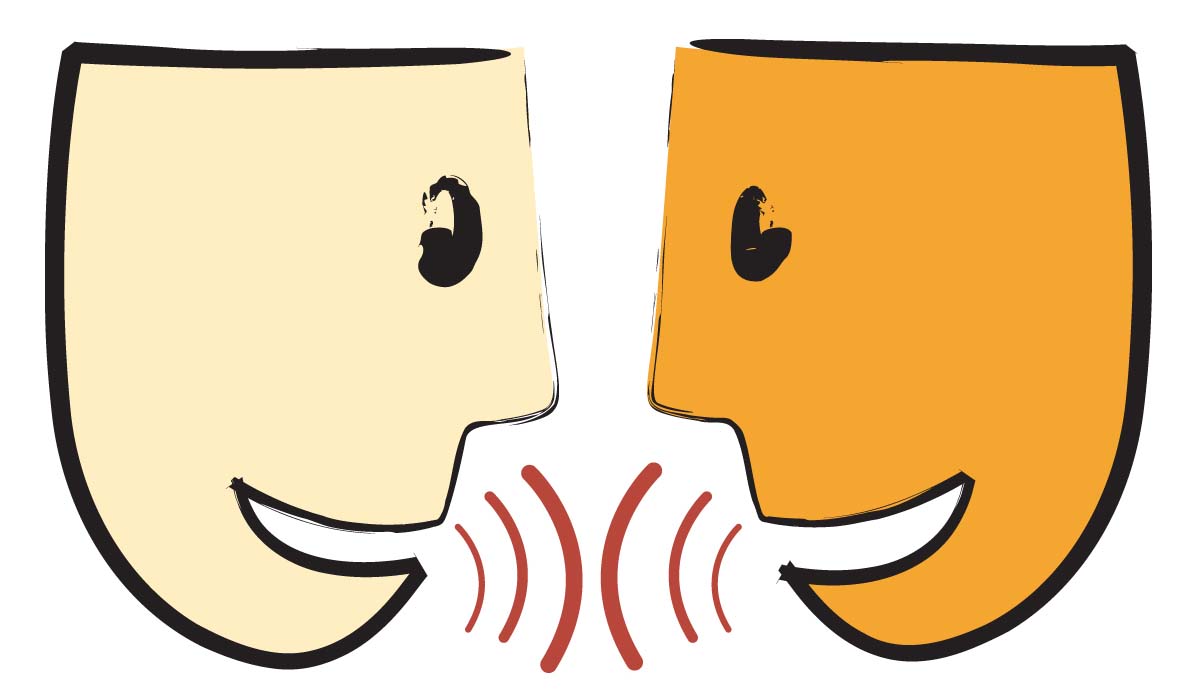Dialoging about Diabetes: PWD Offer Ways to Improve Communication and Care - #2 Phil Southerland (TeamType1)
 As a diabetes educator/healthcare provider (DHCP) I’m observing that the rapidly growing world of online diabetes social networks is helping people with diabetes (PWD) find support and feel supported. People are connecting, building relationships and feeling more positive about their diabetes. I’m delighted to see this trend!
As a diabetes educator/healthcare provider (DHCP) I’m observing that the rapidly growing world of online diabetes social networks is helping people with diabetes (PWD) find support and feel supported. People are connecting, building relationships and feeling more positive about their diabetes. I’m delighted to see this trend!
As a DHCP I’ve long realized I can’t walk a mile in a PWD shoes. I can’t know what it is like day in, day out to deal with this challenging and relentless disease. But, what I do know is that we can learn from each other to change the dialog between providers and PWD to be more positive, more supportive. In my Dialoging about Diabetes blogs I’ll interview diabetes activists and social networkers and ask them to offer ways DHCPs can change our ways to better support PWDs diabetes care efforts and make living your real life…just a bit easier.
Goal two is to enhance the two way street - Help more PWD get connected and encourage more DHCPs to open the doors of social networking to PWD.
Here’s my dialog with Phil Southerland, CEO and founder of Team Type 1, a global sports organization that is radically changing the lives of people with diabetes around the world and author of the newly released book Not Dead Yet (check out my review).
HW Q: Please describe your type of diabetes, years with diabetes and, more importantly, what you are doing in the world of diabetes social networking to improve life for PWD?
PS A: I was diagnosed with type 1, when I was 7 months old, so coming up on 29 years now. There have been ups and downs along the way, but the lessons diabetes has taught me have been invaluable to my life today. Unlike with other diseases, there is a choice with diabetes: You control it, or it controls you. As for social media, please follow me on twitter: @philsoutherland and @teamtype1. Link to the TeamType 1 Facebook page.
I tweet some of my #BGnow and talk about foods and trends related to exercise, how I deal with insurance, and other tidbits that I hope can help others. I feel it’s great that we can all be so connected now. It helps people get a better understanding of what others are doing to control their diabetes, and make course corrections as needed.
HW Q: If you could give DHCPs a few tips to improve our understanding of the challenges PWD face in managing diabetes while living their real life, what would you tell them?
PS A: It's not about all the BG numbers, it's about the dream. I encourage DHCP's to help PWD find what truly has meaning in their life and help people realize, no matter what it is (family, work, activity, volunteer), that the PWD will be better at it with good control. If you can get your A1C to 6.5, you can do anything. Also, I encourage DHCPs to prescribe more strips, and encourage checking more frequently, as it truly is the cornerstone of good diabetes control. The challenge we have, is that it never goes away, EVER. It’s a 24/7/365 disease. We’re going to have high and low blood sugars. We’re not perfect!
Finally, I believe diabetes is a 360 degree disease. Checking blood sugar, insulin, exercise, diet, education, and finally empowerment combine in the chain of successful management. If there is any weak link, then successful management becomes difficult. DHCP's could do a lot of good by suggesting life style adjustments along with treatment options. This action could have exponential impact.
HW Q: How do the day to day challenges of managing diabetes impact your/other’s ability to manage diabetes?
PS A: For me, The Diabetes Game is something I always want to win. I tend to check 15x/day if I’m using a blood glucose meter, or about 100 if using a CGM. Then based on the data I’ll make a lot of small insulin adjustments (typically 7-10 injections/day.) The reason? I am partly OCD, but more importantly if I am in good control, diabetes does not impact my life, but if I allow myself to get to 200, then I may have to say no to doing something, or if I am hypo, I may not be fully functional, so control is the key.
Then based on the data I’ll make a lot of small insulin adjustments (typically 7-10 injections/day.) The reason? I am partly OCD, but more importantly if I am in good control, diabetes does not impact my life, but if I allow myself to get to 200, then I may have to say no to doing something, or if I am hypo, I may not be fully functional, so control is the key.
HW Q: How can DHCPs be more empathetic, understanding?
PS A: They can help the PWD understand the value of good control, and what it means to take control, however they must understand that there is no cookie cutter model for taking control. I ask DHCPs to encourage PWDs to make their own adjustments. There is nothing that can't be done, so long as the right adjustments have been made. DHCPS could help a lot by always reminding PWDs that there is NOTHING that diabetes will stop them from doing.
HW Q: What messages do you have for PWDs about more actively communicating what they need from their DHCPs?
PS A: It’s important for PWDs to keep a log of questions they have for their DHCP. I encourage people to come prepared with 5-10 questions to ask. I know if I don't write them down, when I get in there I will forget, and then it's a missed opportunity to learn. I also suggest letting your DHCP know what is working and why it’s working. Then he/she can pass these strategies or tips to the next person they see.
HW Q: How do you feel that social networking/being connected online can help people feel supported, possibly improve your/their care?
PS A: Sharing info and asking questions to groups of PWDs can go a long way towards better control. It can also help to fuel competition out there. I know if I am sharing my blood sugars, I want them to be good, so it is added pressure to make the right choices when it comes to food, exercise, and treatment. I assure you everyone that whatever problems or troubles they are having, someone else has had them too. If they overcame that trouble, then 99 times out of 100, they are happy to try and help someone else.
HW Q: How do you encourage DHCPs to see social networking as an advantage to their efforts and an avenue for PWD to get increased support?
PS A: I first encourage the DHCP's to check out the social networking sites to see what they think is good. There is so much great information out there from so many wonderful people and I feel the DHCP's could gain a lot of insight into the "Human Factor" of diabetes by reading the different blogs. These insights could help the DHCP make the right recommendation to the right person.
Thanks for sharing Phil!

